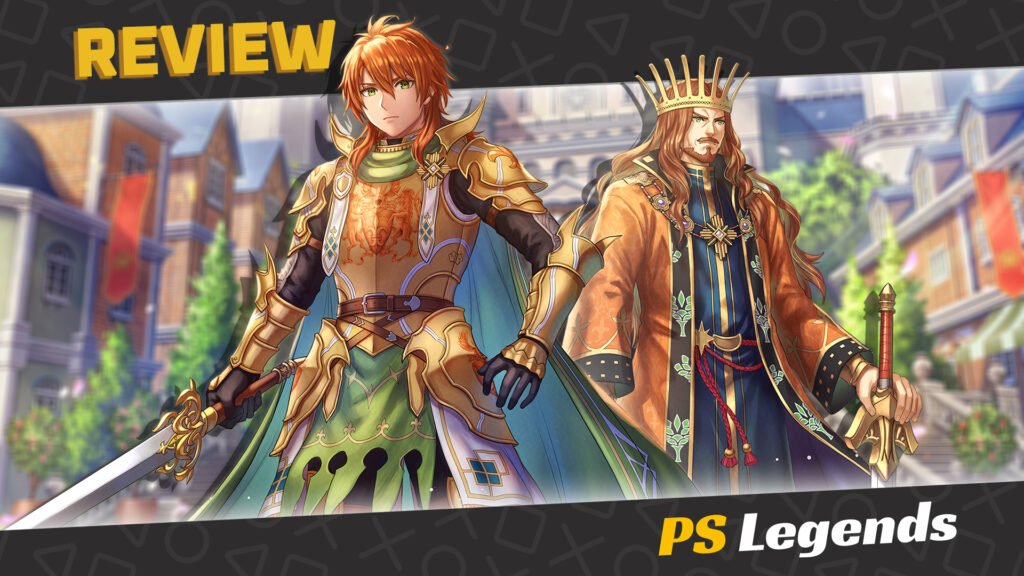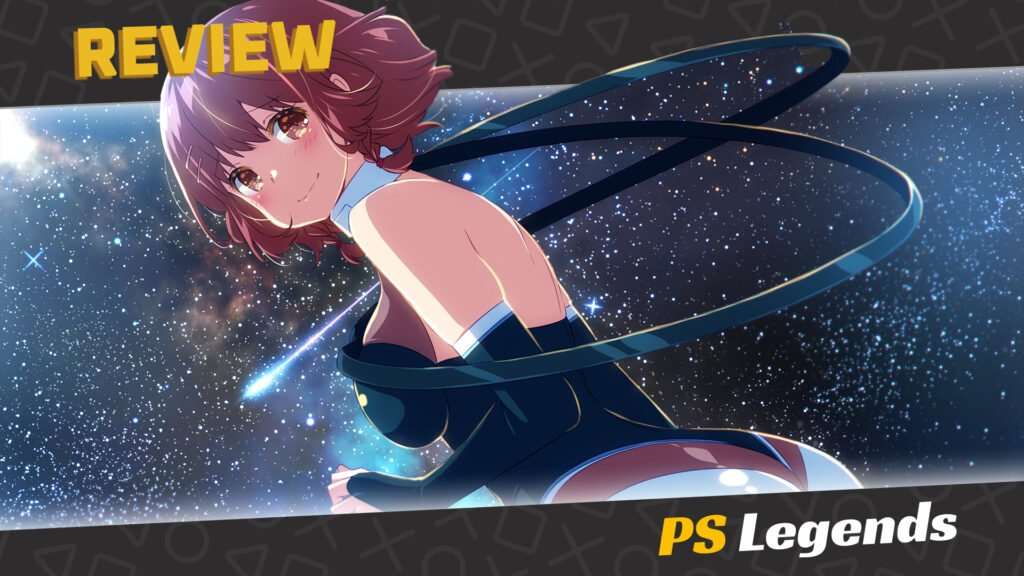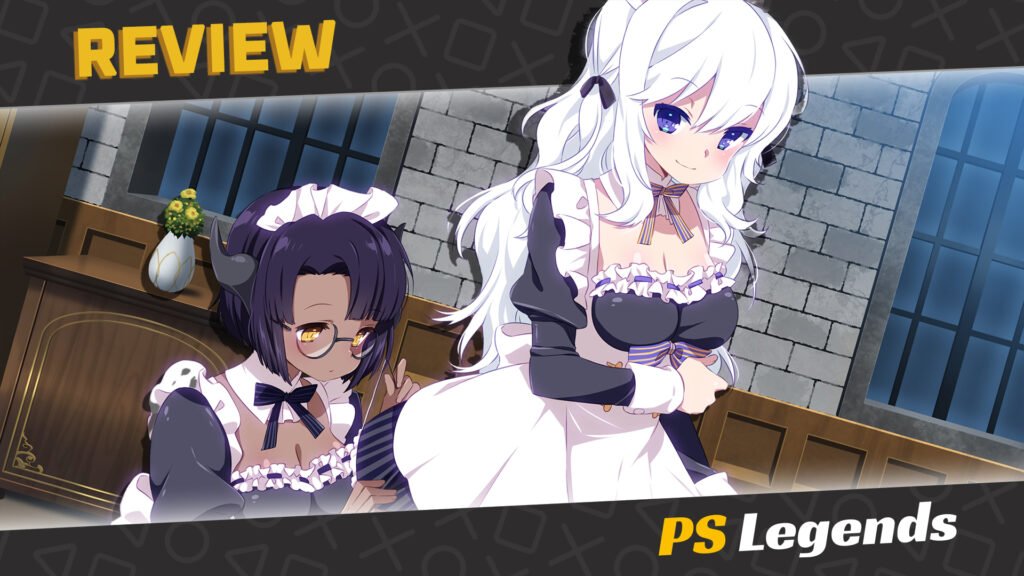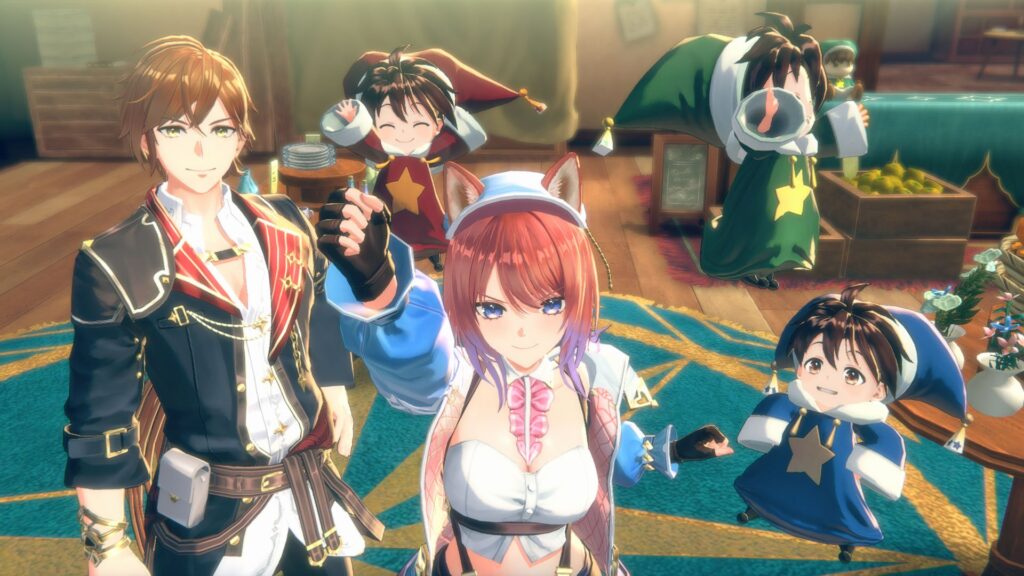The Romancing SaGa franchise has always been one that I’ve been deeply curious about. From the little I heard, it was originally titled Final Fantasy Legend in the west, before it took up its name as SaGa later on.
And according to friends, the SaGa series features some rather unconventional gameplay compared to your typical RPG, but I wondered what exactly did they mean by that. Well, today, I’ll be taking a look at Romancing SaGa 2: Revenge of the Seven, a remake of the Super Famicom game, now on the PlayStation 5.
Do You Need to Play The Original Romancing SaGa?
Ah yes, this is a question I also had when I first had interest in the game: Do I need to play the original Romancing SaGa to understand this one? And the answer is, thankfully, no. Much like how the each of the games in the Final Fantasy series are isolated entries from each other, the same can be said for Romancing SaGa.
There might be a reference or two in the form of an easter egg but in general, you do not need to understand any of the previous games in the series in order to fully enjoy the story of Romancing SaGa 2. Furthermore, this remake also adds in some quality of life improvements, which reduce the barrier of entry that the SaGa series allegedly had.
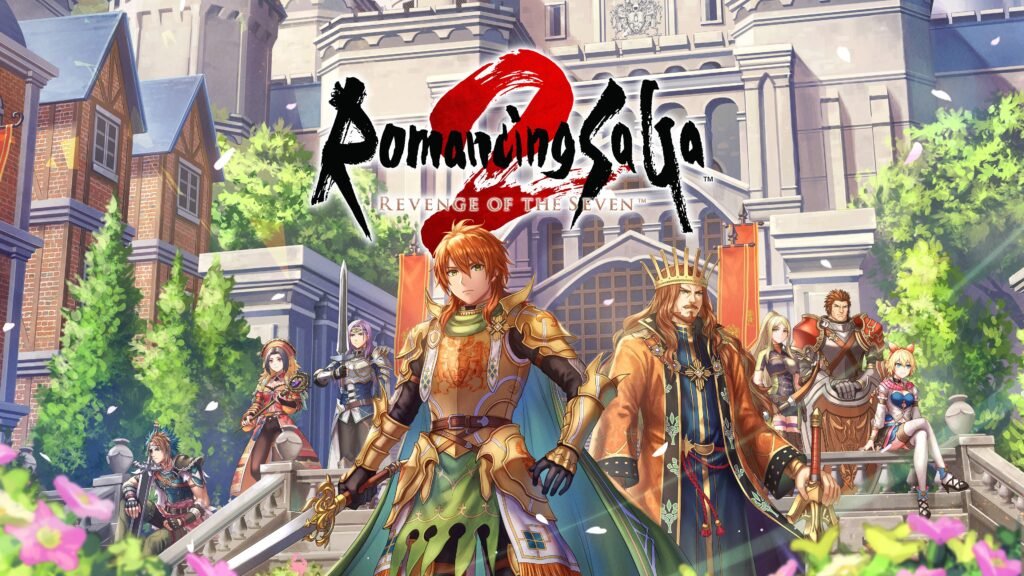
Seven Heroes? Or Is It Seven Villains?
In Romancing SaGa 2: Revenge of the Seven, our story begins with a wandering bard, who tells everyone about a story of the Varennes Empire. There was once a group of heroes that were known as the Seven Heroes. It is said that, should a calamity ever befell the world, they would spring into action.
However, it seems that these legends may have been false, when one of those heroes, Kzinssie, attacks the castle town of Avalon, where Gerard lives out his life with his father Leon and older brother Victor, leading to the question on whether they are Heroes, or just tyrants.
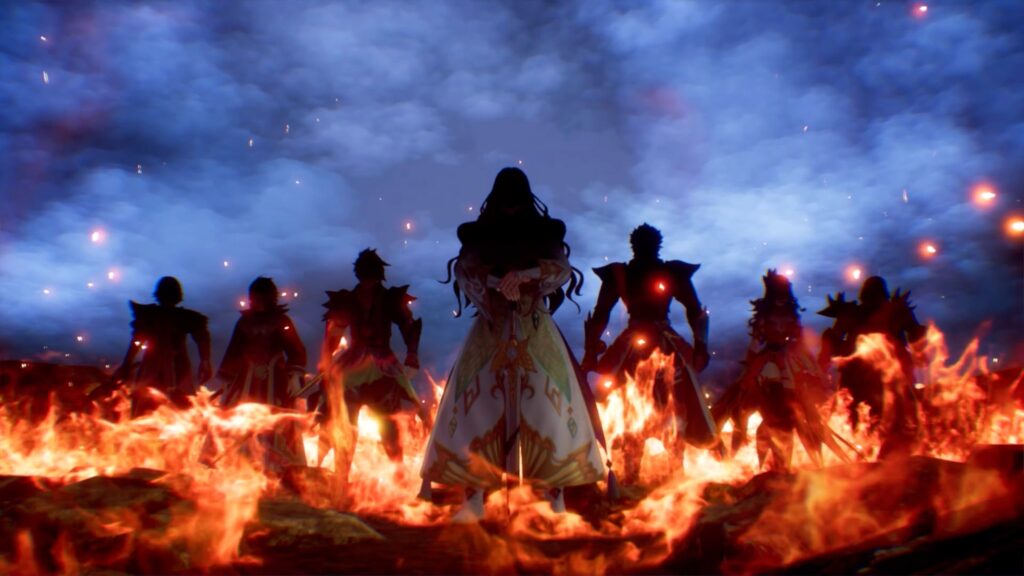
When trying to protect the village, Victor unfortunately succumbs to Kzinssie’s Soulstealer spell, which prompts the king of Avalon, Leon, to conduct a raid into his mansion to avenge his son. But sadly, Leon also falls victim to the spell. Before he ultimately dies, however, he makes use of a mysterious magic that allows Gerard to inherit his soul and memories.
And so, Gerard takes on the mantle as the newlyfound Emperor of Varennes. And thus, vows to take revenge on his father and brother by defeating the Seven Heroes scattered across the world, so that everyone in the world can know peace, without being constantly under the fear that the Seven Heroes will attack them.
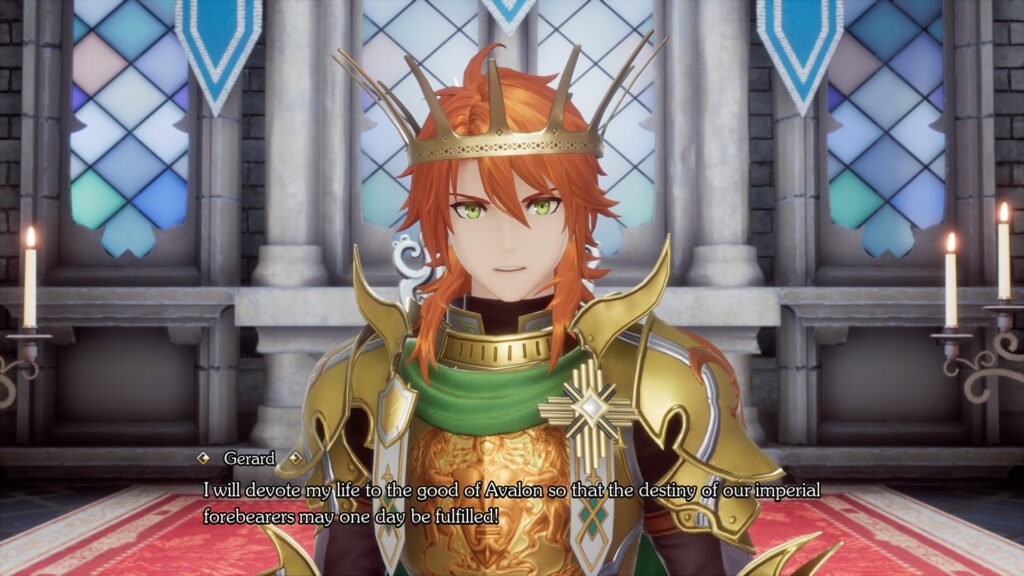
I Now Pronounce You Emperor
Now here is one of the main “gotchas” of Romancing SaGa 2: Revenge of the Seven’s story, and that is…there is no “fixed protagonist” to speak of, or at least, not in the traditional sense. After you’ve done a certain amount of events and make some progress in the main story, you can trigger what I like to call a generational timeskip.
This timeskip will cause decades to pass, and the Emperor you once controlled, alongside their retinues, are now suddenly no longer relevant to the plot, and the game will then task you to pass down the torch to a new generation of Emperor and retinues, inheriting their skills and abilities, in order to continue your quest.
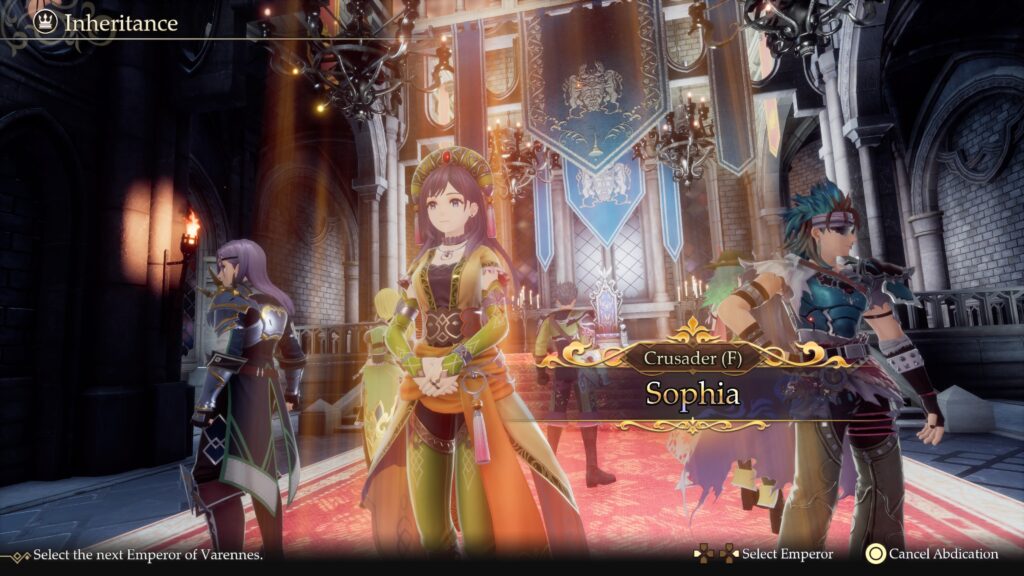
This means that, calling Gerard, or his father Leon a “protagonist” for that matter, is technically inaccurate. Instead, the protagonist role of Romancing SaGa 2, so to speak, is the imperial family and its lineage, who will inhert the skills from those who take upon the throne, and the story continues based off that.
This is a system that was very shocking for me to discover, and gave me mixed feelings about the game. The way the timeskips can just randomly trigger just doesn’t sit right with me, as while you can willingly go to your throne, and appoint a new Emperor, the fact that the number of years that pass is completely random has to be one of my biggest disappointments with this system in general.
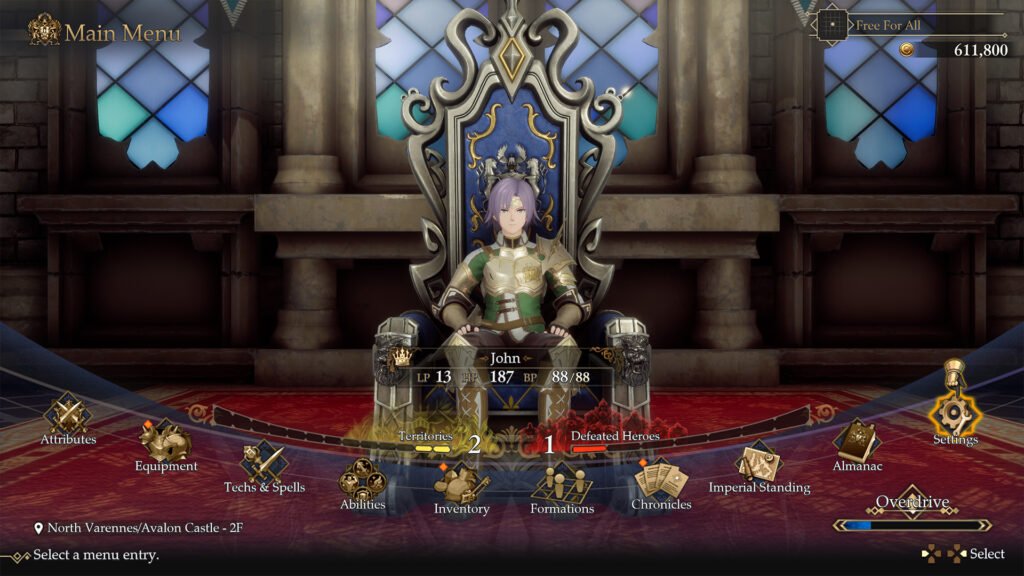
Listen, I loved Gerard’s character design and personality, so to suddenly have the plot take him out of the narrative, and force me to reform my party all over again, for something that, personally, makes no sense narratively speaking, almost made me want to put down the game and stop playing altogether. That’s how bummed out I was.
I would forgive it if say, a descendant that looked similar to Gerard would stay, but no matter what you do, he will always just vanish when you first unlock this system, there’s no way around it. Make no mistake — I can sort of understand what they’re trying to do here, but this randomization aspect of the system is terrible.
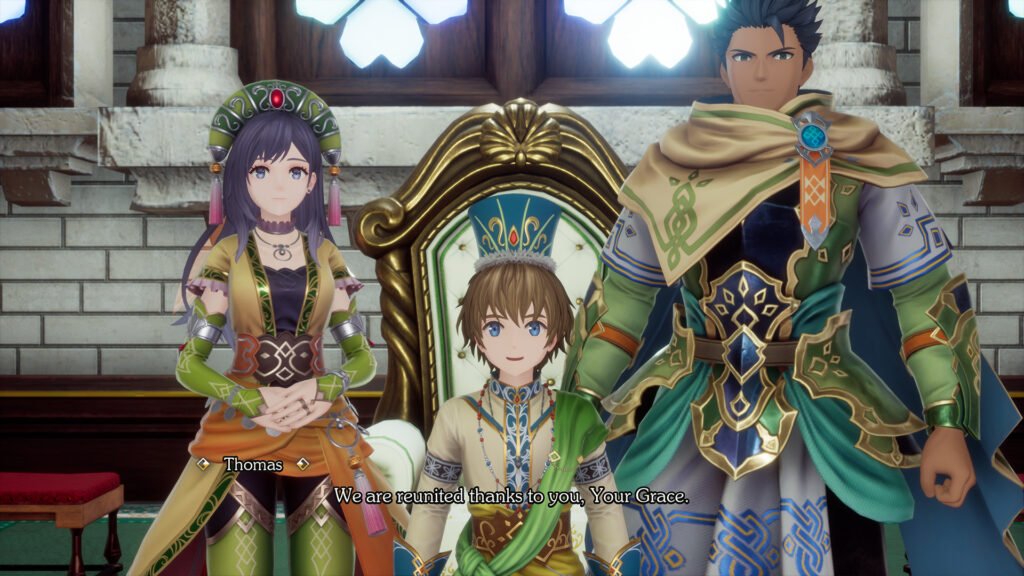
No Two Playthroughs Can Ever Be the Same
To give credit where credit’s due, however, the game’s narrative is designed in such a way that no two playthroughs of the game can ever be the same, especially if you go in blind without a guide. There are multiple times where you’ll be faced with many choices, and believe me when I say that even as inconsequential as some choices might seem to be at a glance, they have the potential to significantly alter the course of the story.
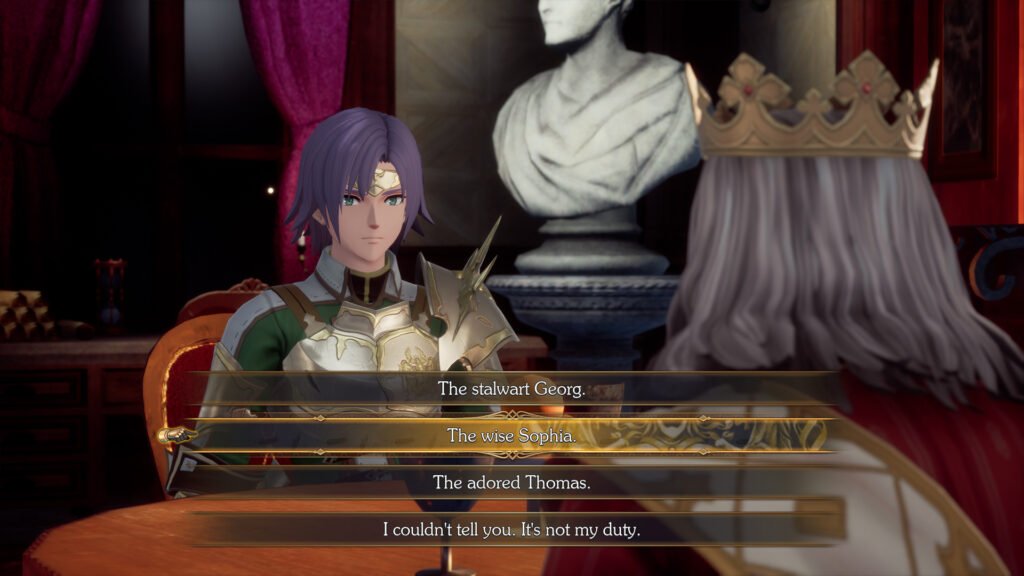
This is, in a way, an amazing way to go about it, because it allows for a fresh experience every time you start the story anew, and it gives the player a taste of their consequences of their own actions, which gives it a cool “build your own adventure” vibe to it. There were many times where my choices really made me feel like I had total control over the story, kinda like a D&D campaign.
Scattered across the realm are various terminals that will play back cutscenes featuring the Seven Heroes. They add quite the deep layer of lore, and reminded me of Link’s memories that you would collect in The Legend of Zelda: Breath of the Wild and Tears of the Kingdom, with the only difference being that it’s a completely different perspective.
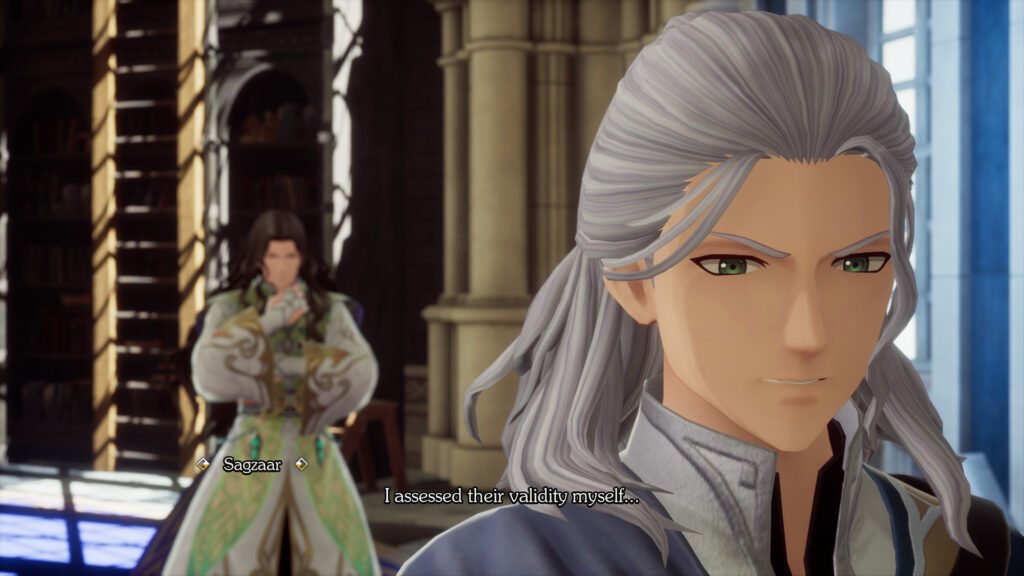
A Twist on the Traditional Turn-Based System
One of the key points that stood out to me was how Romancing SaGa 2: Revenge of the Seven handles character growth. Instead of a traditional leveling system, defeating enemies earns you Technique Points, which are distributed depending on which weapon skills and spells you’ve used during combat.
Characters learn new skills by constantly using their skills, with a lightbulb icon indicating whenever they’re close to learning one. This system reminds me of Mario & Luigi: Superstar Saga, and this is a really cool system that incentivizes you to use as many varied skills as possible.
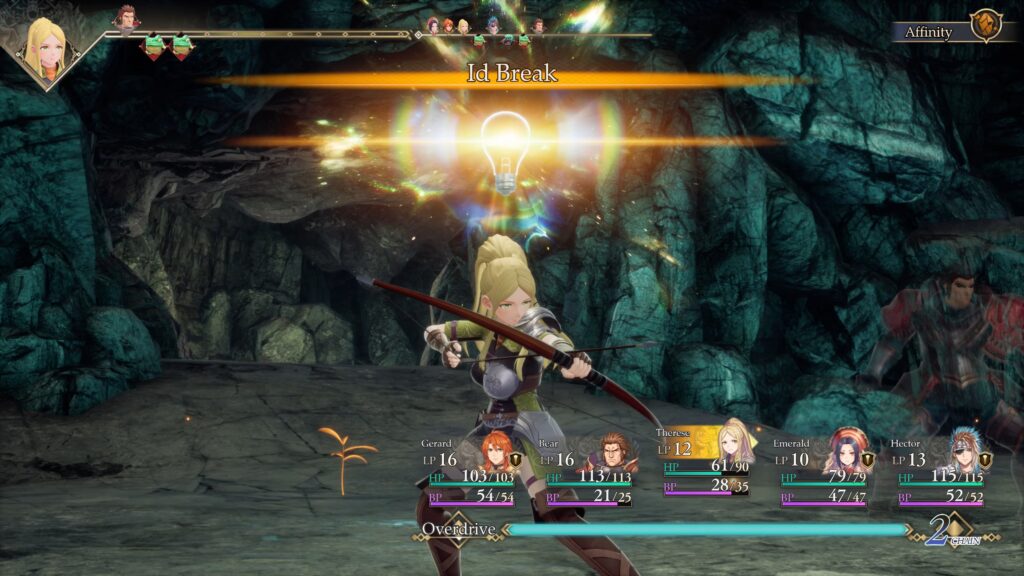
Perhaps my only gripe with it is that whenever the character learns a new skill, they will use it, whether you like it or not, which can make strategizing a bit annoying, especially when they learn a skill that serves no purpose at all for the current battle, wasting their turn.
Curiously, HP is healed after every fight, with the only stat that you must keep a close eye on is your BP, which is used for the special weapon skills I’ve mentioned earlier. At first, I wondered why that was the case, until I saw that you cannot think of HP as the character’s actual health.
Rather, it’s best described as a shield that protects their most important stat: LP. If that stat reaches 0, that’s it. They are permanently dead, with practically no chance of them ever being revived. Talk about an interesting twist. This means you have, more than ever, keep a close eye on your health, and carefully use healing items to make sure you do not lose that party member forever.
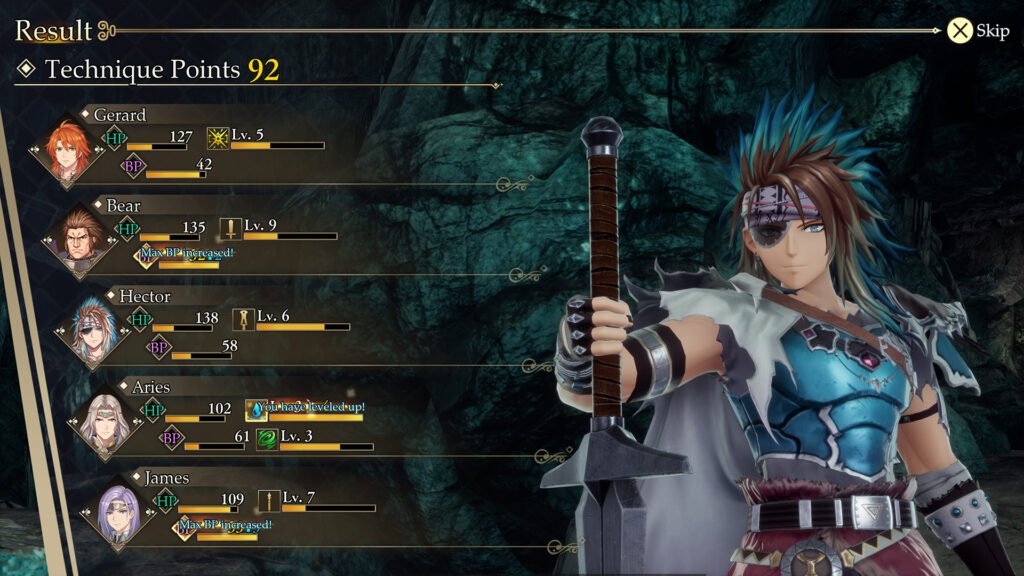
Grind Smarter, Not Harder
Romancing SaGa 2 uses a rather intriguing adaptative difficulty system, where the game keeps track of how many battles your party has fought, and adjusts the difficulty on the fly. So the more enemies you fight, the stronger they become, with the exception of Boss Battles, which depend on which of the three game difficulties (Casual, Normal, Hard) you are currently at.
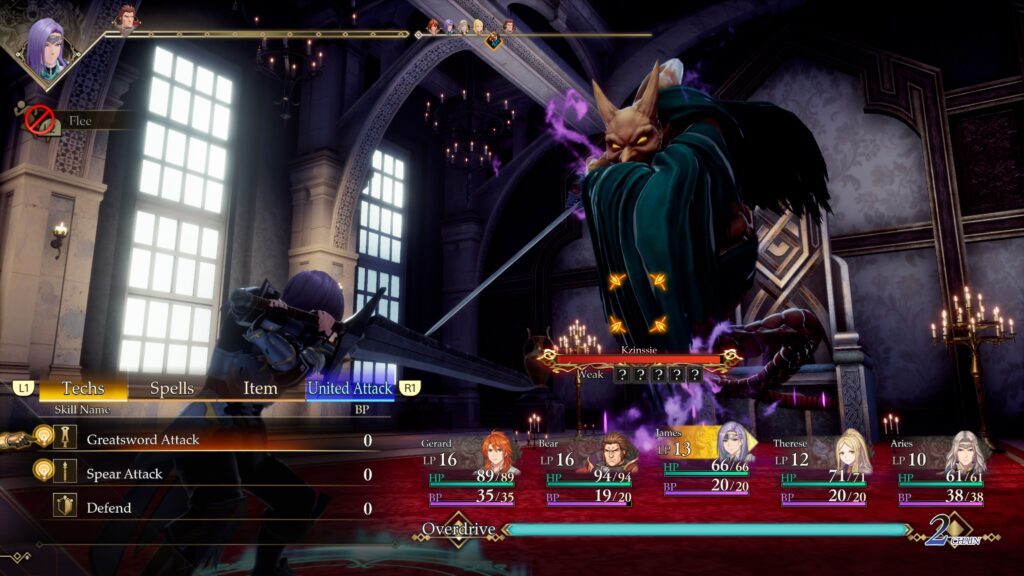
Of course, though the enemies may get tougher, this also means that you’ll inherently use more skills, further strengthening your party. This essentially means your focus must be on learning as many skills as you can. And incidentally, running away from combat will still count towards the game’s check that will increase the enemy difficulty, which might prompt you to maybe reload your save file to an earlier point, to ensure this doesn’t happen.
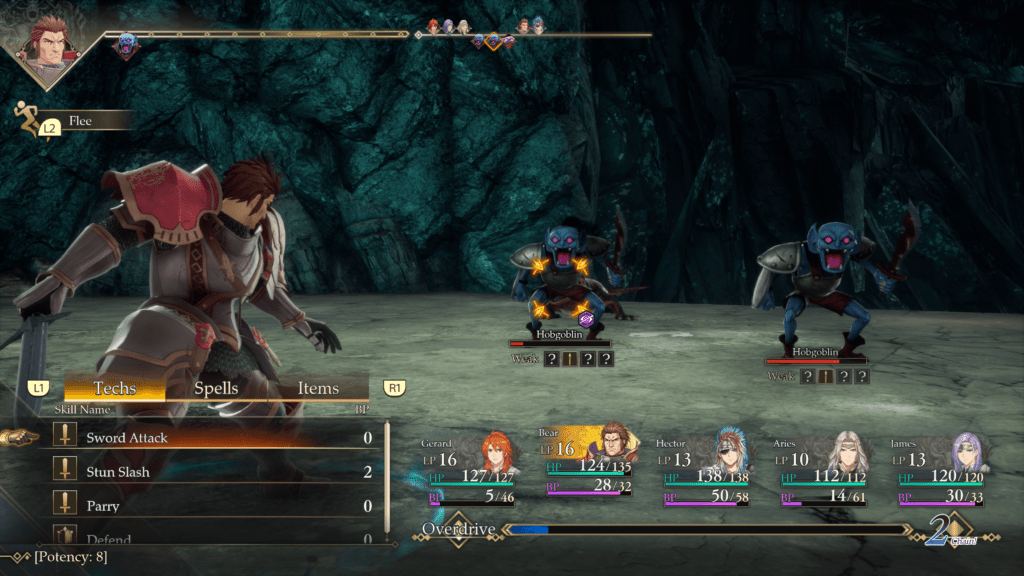
On paper, this sounds like a great way to provide the game with a difficulty that grows with you. However, for some odd reason, bosses are exempt from this rule, so you can quickly end up in a weird situation where a boss enemy takes 300 to 400 damage per hit, while his minions have way more HP and take way less damage, even if you play on the easier, Casual difficulty to enjoy the story.
Stunning 3D Graphics, But Somewhat Iffy Performance
Romancing SaGa 2: Revenge of the Seven on the PlayStation 5 runs at a smooth 60 FPS. For the most part, I didn’t encounter any framerate dips that were rough on my experience. However, it does seem that the game doesn’t take full advantage of the hardware, and this is evident for when enemies or NPCs are far away from you, they appear to move at a choppy 15 frames a second.
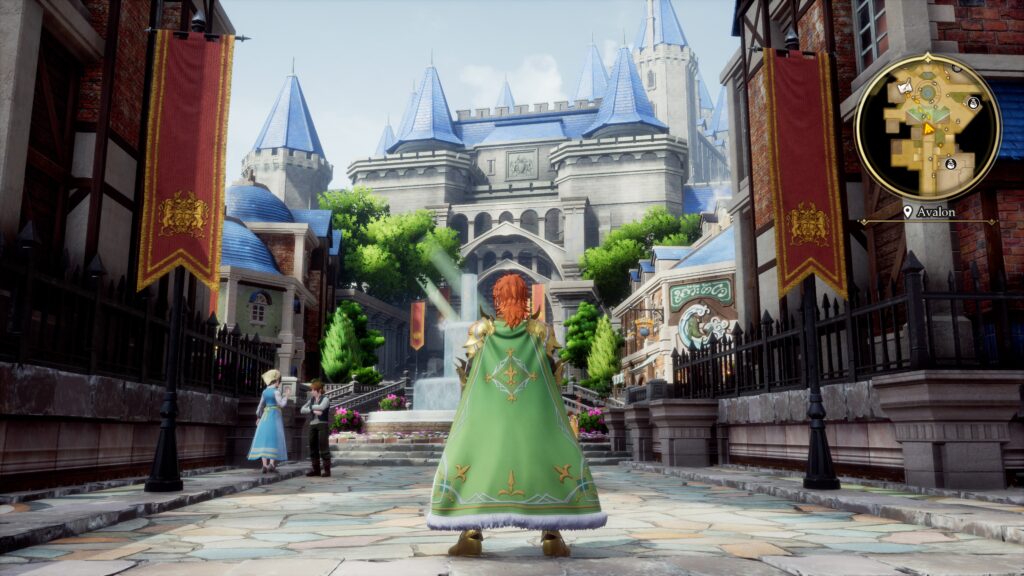
The graphics are stunning however, even if some character models make them feel more like plastic dolls at times. In regards to the soundtrack it is really nice, and there is an option to revert back to the original soundtrack, if the orchestrated rearrangements aren’t really your thing.
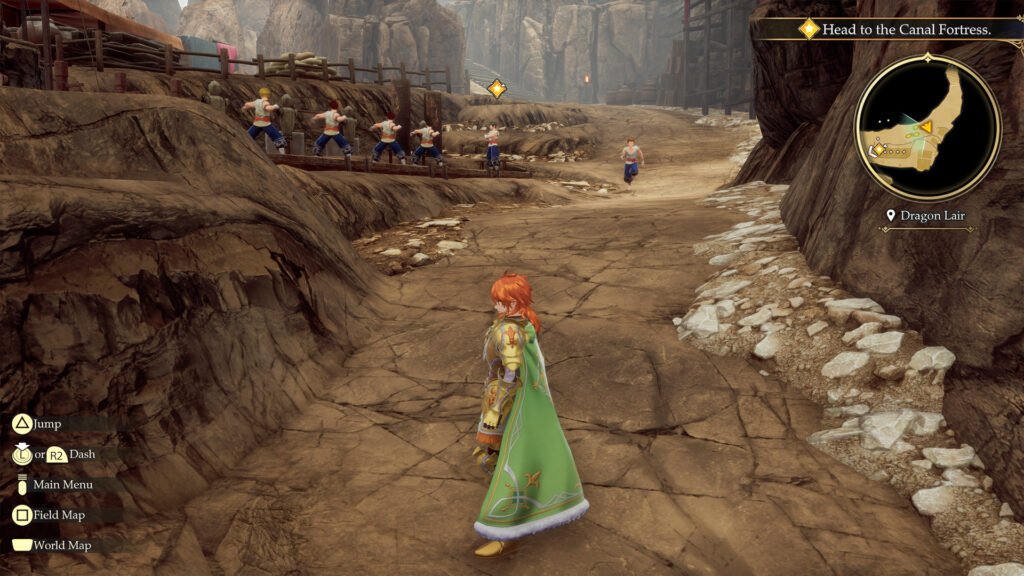
Replayability = Infinity
Estimating a playtime duration for Romancing SaGa 2: Revenge of the Seven is…rather complicated. According to Square Enix in a Famitsu survey, clearing the main story will take you around 40 to 50 hours, while fully completing the game will take upwards of 100 hours.
I would argue that this high playtime has to do with how two playthroughs of the game can never be the same, especially for the majority of players that might prefer to not rely on a guide.
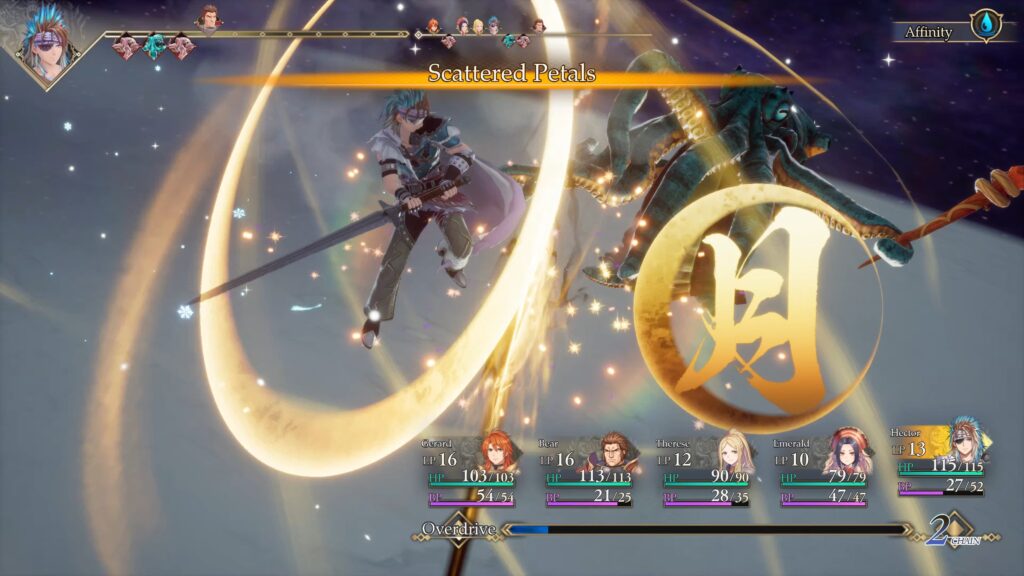
There’s a lot of things that can be done in this game, and the story is practically always changing on the fly, depending on who you interact with, what choices you make, and even how you choose your battles. It’s all just so interconnected that I feel this adds a lot of replayability value to the game, which is really cool.
The SaGa Series Really Lives Up to its Name
Romancing SaGa 2: Revenge of the Seven is quite honestly the most intriguing JRPG I have ever played in 2024, with its many intrinsically connected systems providing a experience that is equal parts in shocking as it is gratifying. That being said, whether this game is for you or not is definitely a toss-up.
The generational system was one of the game’s biggest downfalls for myself, but it sort of makes up for it with just how this is a very unique RPG that deviates a lot from the traditional mold. The remake’s modern imporvements greatly reduce the barrier of entry for anyone willing to dip their hands into the series, so I strongly urge that if you have even the slightest curiosity, to give the game a try and see for yourself if it’s a game you can get behind.
Joys
- Engaging storyline
- Well thought out systems
- Good character design
Cons
- Choppy performance in some areas
- Adapative difficulty may not be for everyone
